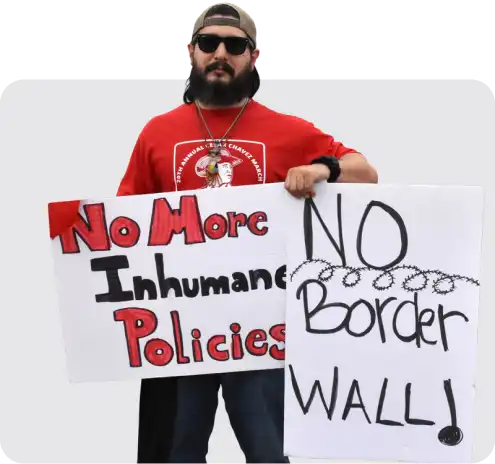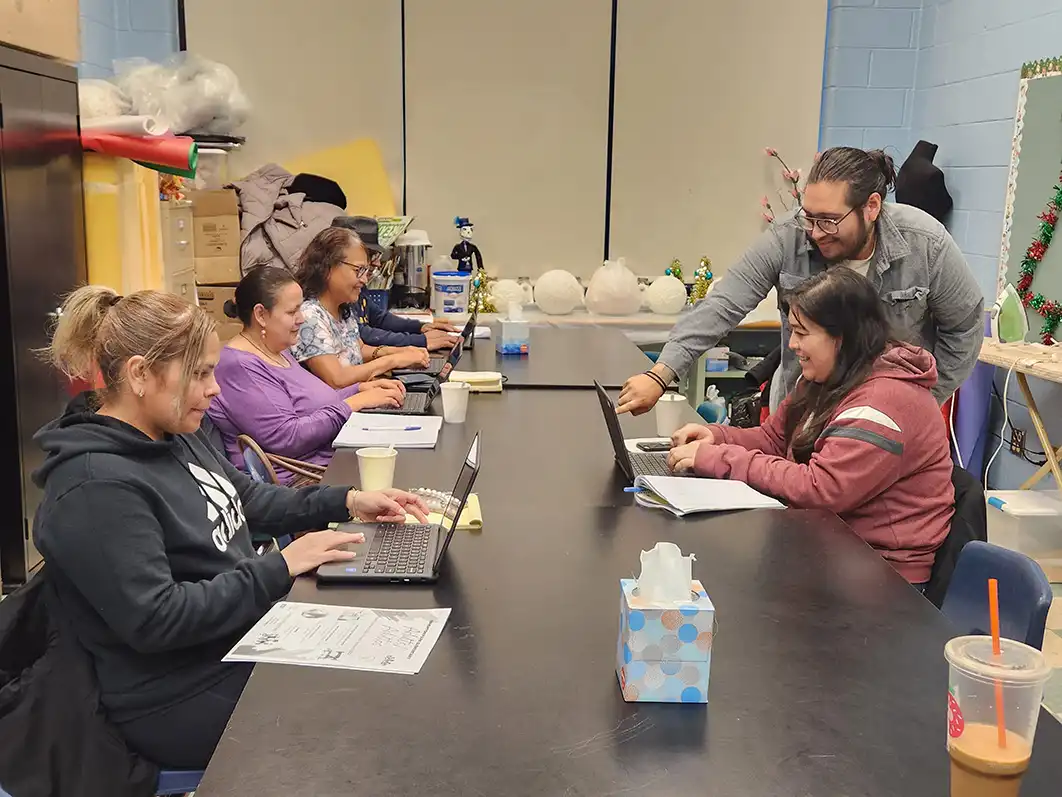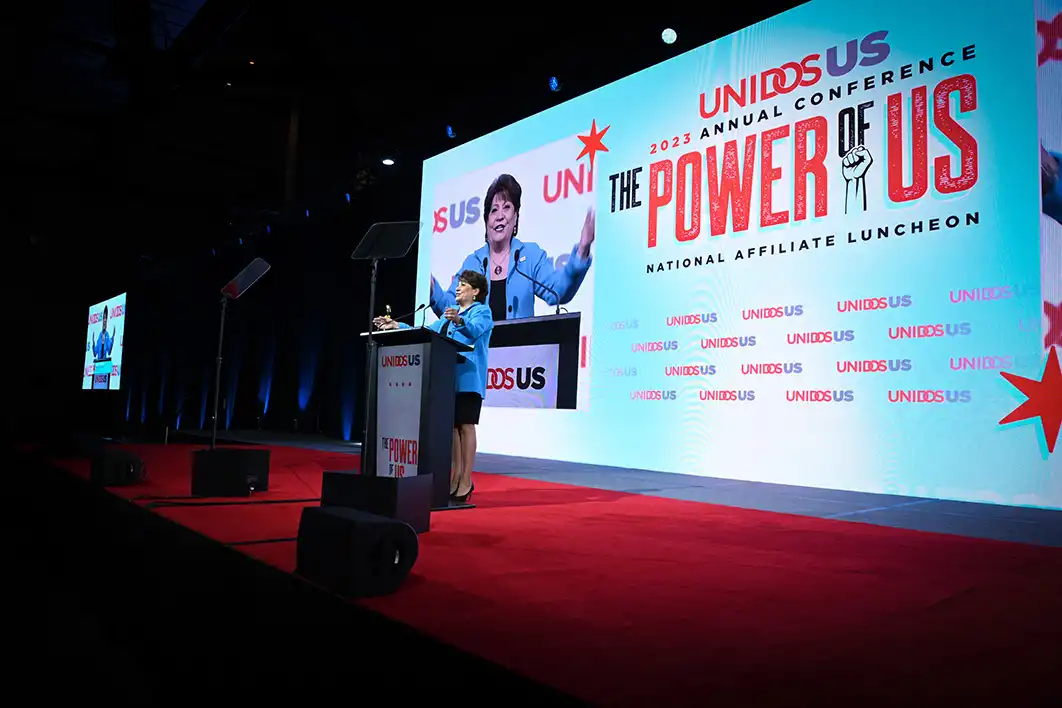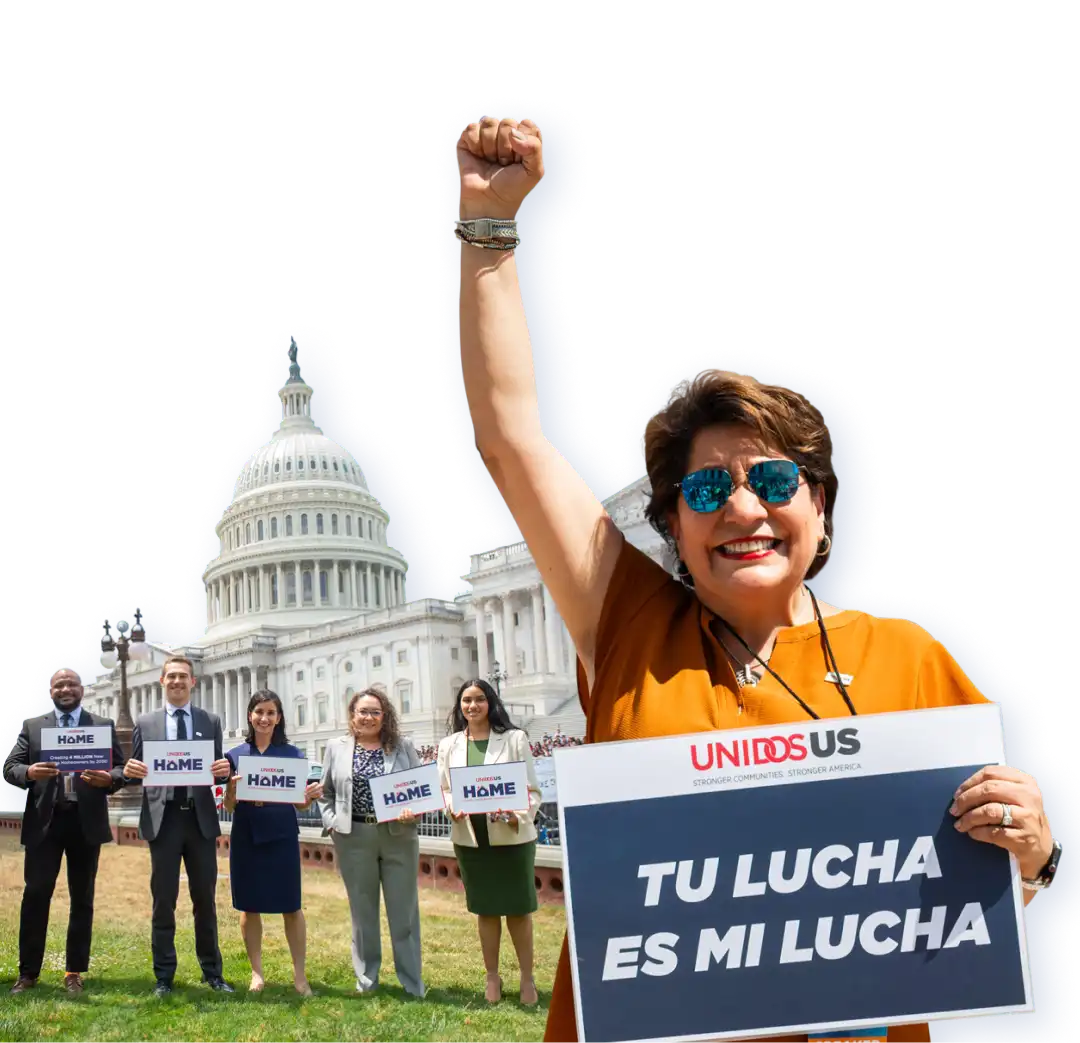
The Power of
Advocacy
Supporting Our Community’s Recovery and Success

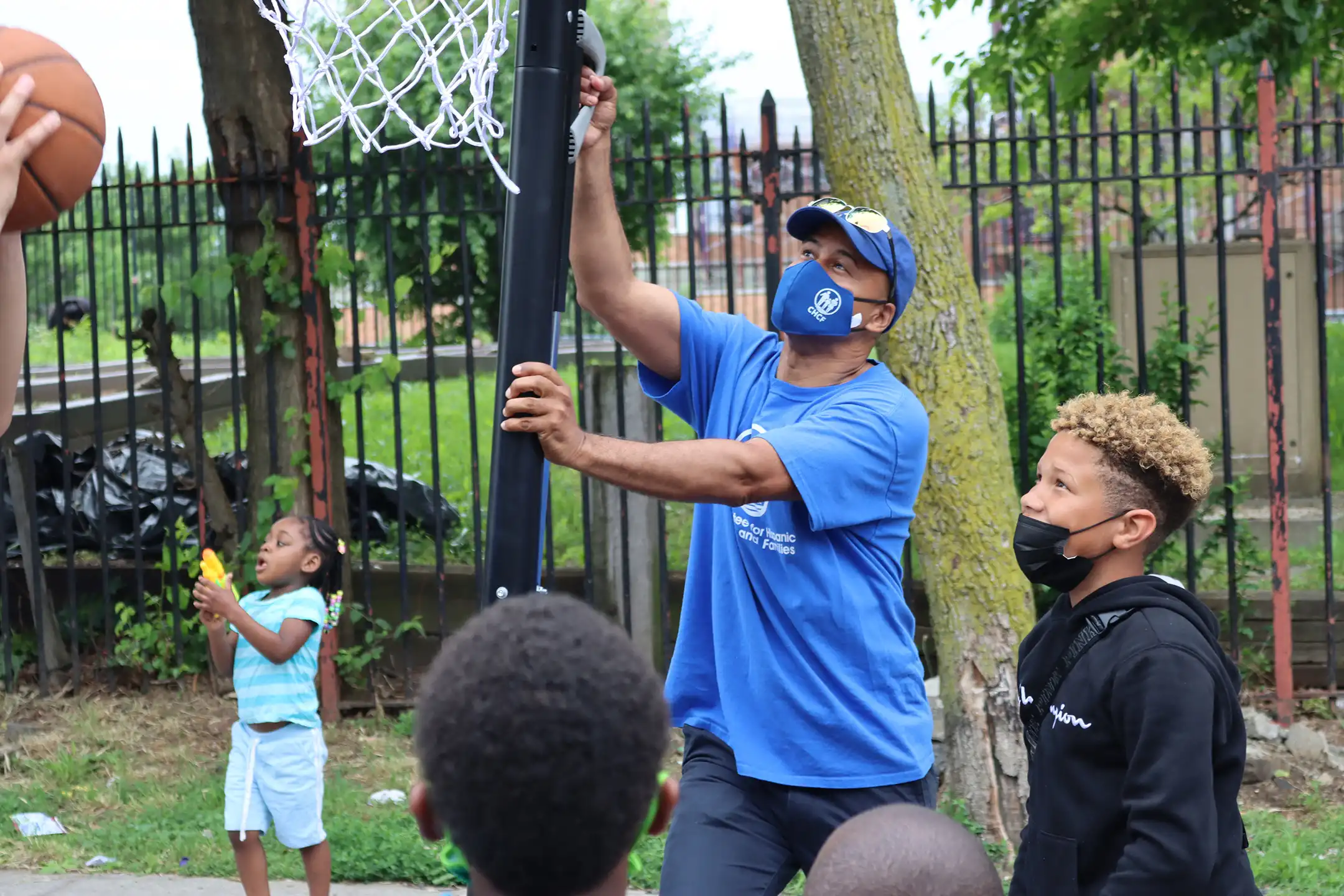
Become a donor.
Your contribution will help fund our work by supporting policies and projects that impact the Hispanic community.
Donate NowGet involved.
Become part of our action network and help us continue to forge a society that provides equal opportunity to all.
Join our Action Network

